

Today we’d like to introduce you to Michael Walter.
Michael, can you briefly walk us through your story – how you started and how you got to where you are today.
I’ll start with some history. Crystal Clear Sound Recording Studios is a very renowned and storied musical institution in North Texas – currently the longest continuously running recording studio in Dallas – since 1978. CCS was built on the commercial music jingle advertising boom in the 1980s, survived the advent and proliferation of affordable consumer recording gear of the 1990s and 2000s, and stands to this day as a truly professional full-service recording, mixing and mastering facility. We’ve had some incredible musicians and music come through our studio – Kirk Franklin, Old 97s and Rhett Miller, Michael Martin Murphy, Pantera, Ted Nugent, Brave Combo, The Dixie Chicks, Cee Lo Green, Rusty Wier, The Toadies, Tripping Daisy, Reverend Horton Heat, Erykah Badu’s band, Hank Thompson, Buddy Miles, Ernie Watts, Blue Lou Marini, Adam Nussbaum, The UNT Jazz Singers and the One and Two O’clock Lab bands, and far too many others to name.
Nearly five years ago, my two partners Kent Stump and Tim Wilson and I became just the third owners of CCS, purchasing it in 2013 from Sam Paulos, who had purchased CCS from the first owner, Merle Baker in 1990. Kent and Tim were employees of CCS. Kent was chief engineer and Tim ran the CD duplication operation, both since 2000 or before. I’ve known Kent since our freshman year at UNT as jazz studies majors. In the late 1990’s, Kent began interning at CCS. When he was later promoted to engineer of the main room I filled his intern slot. I later stepped away from CCS when my first child was born, and after being a stay-at-home dad for five years, I began a teaching career with Dallas ISD, at Bryan Adams High School, teaching AP Macroeconomics. Meanwhile, in 2003, Kent, Tim and I formed what was to become a rather successful band – the heavy blues/psych/doom-stoner band Wo Fat.
I would spend a great deal of time at the studio with Kent and Tim, rehearsing or recording our albums. During one of our rehearsals at the studio in 2011 or so, Kent mentioned that he wasn’t sure how long he and Tim would remain employed at CCS and shared what he knew about owner Sam Paulos trying to shop the studio around to sell. It doesn’t take an economics professor to know that the existing model for full-service recording studios were becoming about as viable as Blockbuster Video franchises, so I was reasonably sure that Sam might be willing to sell to his employees (plus one). The manager of Crystal Clear since almost the beginning, and it’s one-time chief engineer, Keith Rust, had already announced his intention to move out of his position and into Real Estate. I formed a Texas LLC under the name Root Down and struck a deal with Sam to buy CCS and moved into the dual role of owner/manager.
CCS has scaled down from the four-employee business we first tried to maintain, into the current two-man operation. Kent handles all engineering tasks in the ‘A’ studio and the Mastering Studio, and I run the CD manufacturing operation as well as take care of all finances, booking, and management. Although Tim has since moved on from both the business and from Wo Fat, Kent and I continue as business partners and as bandmates. We added a new full-time bass player to the band in 2016, veteran musician Zack Busby, who has played in a slew of notable Dallas bands, including The Burden Brothers, Slow Roosevelt and Descender.
The studio remains our home base, but Wo Fat manages to take some time away each year for tours and festivals in the US and Europe. Wo Fat has a healthy international following thanks to our ability to continue to record and distribute our albums, also due to our strong relationships through the years with three very dedicated heavy rock record labels – Nasoni (Berlin), Small Stone, and currently Ripple Music. Currently, we are writing for our seventh studio album and we will be going back to Europe for Desertfest Belgium and a short tour in the fall.
The current configuration seems to be the right one for our studio at this time. We’ve stabilized and the doors remain open. Kent and I both are working harder than we probably ever have, but we are seeing the dividends of each extra bit of effort and care that we put into satisfying our clients’. We are slowly beginning to see the potential for growth as more and more young artists encounter the intrinsic creative ceiling of DIY projects and discover the value that our services provide for their music.
Overall, has it been relatively smooth? If not, what were some of the struggles along the way?
I can definitely say that the road has not been a smooth one. But we are musicians – we didn’t get into music to make money hand over fist. Music is our passion. But even bands and musical ventures have to make good business decisions or they won’t be sustainable.
Our biggest hurdle has been the slow devaluation of our product – professional sound and music production – especially with the advent and proliferation of “prosumer” equipment, low-cost studio gear available to the artist. Beginning in the 1990s and continuing to the present, high-end studios were no longer the only option for songwriters and musicians. With the new computer-based Digital Audio Workstations, anyone with a little money was able to create their own recording environments right in their own homes. These home studios gave top-notch recording facilities like ours a real source of competition.
Although the result was foreseeable – many recording studios closed during the “prosumer gear” rally – the market for professional recording services did not dry up completely. Why? Because, if all it took to play football like Tom Brady was to put on the uniform, then everybody would be Tom Brady. As more and more musicians found out for themselves that, while having digital home studios were great tools for writing and perhaps making music demos, what their set-ups lacked became immediately evident – acoustically desirable spaces, efficiency, professional skill-sets and guidance, experienced ears and a truly professional analog signal path – the best microphones, pre-amplifiers, mixing consoles, and dedicated outboard gear.
So we have seen a slow but steady return by many of these musicians-turned-amateur engineers to studios like ours. Part of the onus of the steady devaluation of music and sound begins with the end consumer, the listening public, and their increasing acceptance of lower standards in the music industry. There is a separate, fascinating discussion exploring the reasons why this is happening. But for now, let’s just say that in the trade-off between convenience and quality, quality has been compromised. Quality is wise and experienced. Convenience is impetuous and unseasoned. The conscience of New Technology favors convenience, many times at the expense of quality.
Convenience means that everyone with a cell phone and Garage Band can make a beat and potentially be a star. Convenience means that anyone with access to the internet can stream songs for free or nearly free. The direct conduit between artist and consumer has resulted in a complete shake-up of the industry – toppling labels, muddling composer and publishing rights, eliminating many middle-brokers of the traditional hierarchy. Some of this shake-up is arguably a good and necessary function of technology and progress.
However, part of the by-passed hierarchy is the professional means by which high-quality sound and music is able to be produced in the first place. Our business’s greatest asset is our vast knowledge-base and experience – the ways in which we know how to help artists capture their best performances and facilitate the flow of their creativity using the best equipment captured in the best acoustic environment. Our greatest challenge is convincing a new generation of artists, composers, and musicians that the value we provide to their product is vital to their sustainable success.
For instance, one of the most critical services that our studio provides is Mastering. Mastering is the final important step in production. After a song has been recorded and then mixed, mastering is what helps produce a song or collection of songs that is consumer-ready. For people who may be unfamiliar with mastering, I compare it to putting polish on a freshly-washed car. After you wash your car, you may think it is as super shiny-clean as it could be and could not look any better. But then when you see the car after it has been polished, you begin to question what you thought “shiny” is.
Mastering is a somewhat mystical art requiring very specialized tools and experienced ears. However more and more, younger musicians may bypass this step when they release a song or album. Or because they may not know better, they are convinced by engineers who are lacking in the experience or equipment to provide real and effective mastering to their songs. So it becomes important that we educate our clients on the dynamics and level of sound quality that is the industry standard.
On the flip-side, mastering is probably the area for the greatest potential growth if we can market it to those who need it. Thanks to the internet, clients can send us stereo files from anywhere in the world, have us master their songs, and we can send their mastered files back to them, within a day or two. Those who have placed their trust in us to master their songs almost invariably become loyal, return clients. Our base of satisfied customers is our biggest asset. And because engineers and producers are often our mastering clients, these creators have stables of clients themselves, and they are the ones who will return to us project after project.
In the end, it comes down to this: music is an intensely personal endeavor. Because of our commitment to honoring our client’s vision, efficiently and transparently operating as a partner in the background, we build a trust with our clients. And musicians are a tight community – most of our new clients come to us on word-of-mouth referrals, especially after they discover for themselves our rich history in North Texas’ music scene.
Another struggle has been allowing the shape of the business to change to meet changes in the market. In our almost five years of ownership, we have cut our work-force in half. It took me a while to realize that this needed to happen, although, in hindsight, I’m not sure why I was so reluctant to accept it. Both Tim and our long-time mastering engineer, Nolan Brett, had developed such a rapport with clients, I felt that if either departed, we would certainly not be the same company. But both Tim and Nolan could see the writing on the wall, that there just wasn’t enough business to sustain their exclusive positions.
After Tim moved on to another career and I took over CD manufacturing, I realized very quickly that we should have made the move a lot sooner. CD sales have been in steady decline for years. I think that sales may have plateaued for the time being as there is still a good deal of demand for a tangible form of media for artists to sell or to use as a promotion at their shows. But hardly anyone is selling to big retailers – they are all gone.
We hope to be the “last man standing” in this market to provide individuals and bands with a way to get a quick-turnaround, quality physical product to their fans at the gig or to sell online or to take out on the road. But the compact disc is on the way out, to be sure. Our challenge going forward is to identify what may become its replacement as the go-to medium for performers to physically put product in the hands of their live-concertgoers and fans.
Alright – so let’s talk business. Tell us about Crystal Clear Sound – what should we know?
Crystal Clear Sound is a one-stop shop for recording, mixing, mastering, CD duplication and replication. We are the premiere recording studio in Dallas.
We are most proud of the fact that we are the longest continuously-running recording studio in Dallas – since 1978. In this industry, to ride all of the ups-and-downs and live to record another day, is a spectacular feat of accomplishment!
Any shoutouts? Who else deserves credit in this story – who has played a meaningful role?
My greatest supporter has always been both my parents, but especially my mom, Judy Walter. An accomplished painter and mixed-media artist herself, she has always been 100% positive and energetic in her belief in my abilities.
Another person I am greatly indebted to is Joe Russell. Joe is a long-time family friend whose acumen was key in acquiring the business. Joe continues to provide me with invaluable advice and guidance in all matters of business and life.
My friend, band mate, and business partner, Kent Stump, without whom our studio would have folded many years ago. Without fuss or fanfare, Kent is always a true professional – as an engineer, as a performer, as a bandleader, and as a business partner.
And it is only through the daily acts of love by my amazing wife, Marion, and my four crazy and uniquely talented kids, that I am able to get up in the morning, let alone accomplish anything creative or worthwhile after doing so.
Pricing:
- Recording and mixing, including engineer – $80/hour
- Mastering rates – $50 each song for the first 2 songs of a project, $40 each song thereafter
Contact Info:
- Address: 4902 Don Dr Dallas, TX 75247
- Website: www.crystalclearsound.net
- Phone: 214-630-2957
- Email: michael@crystalclearsound.net
- Facebook: https://www.facebook.com/crystalclearsounddfw/
- Yelp: https://www.yelp.com/biz/crystal-clear-sound-dallas-2
- Other: https://www.lonestarsongcrafters.com/





Getting in touch: VoyageDallas is built on recommendations from the community; it’s how we uncover hidden gems, so if you know someone who deserves recognition please let us know here.












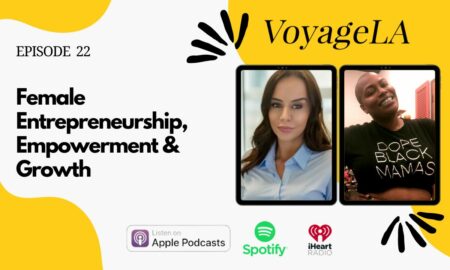
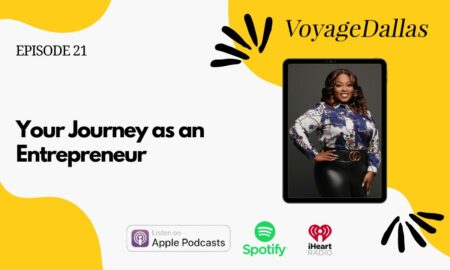

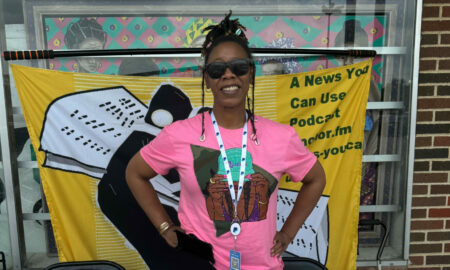
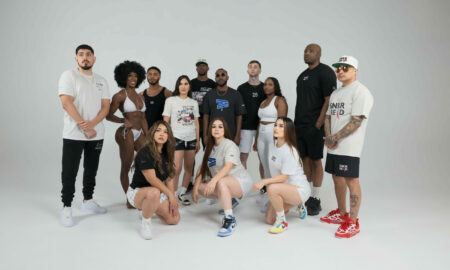
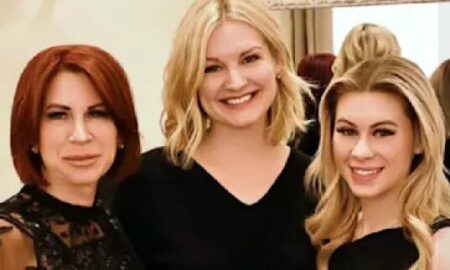
Frank Hames
March 1, 2018 at 4:00 am
Great room. Great gear. Great engineer